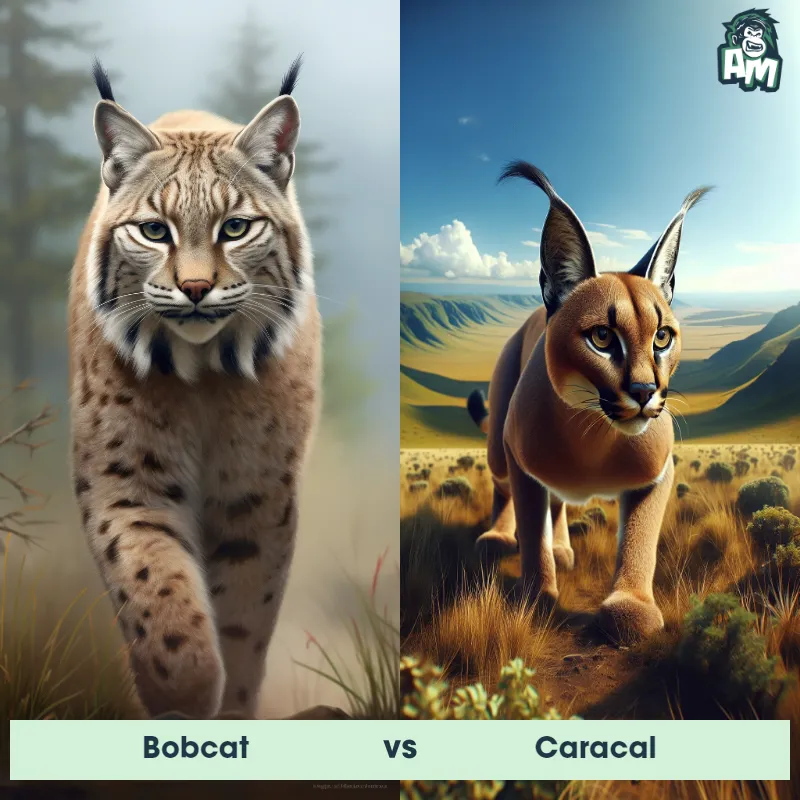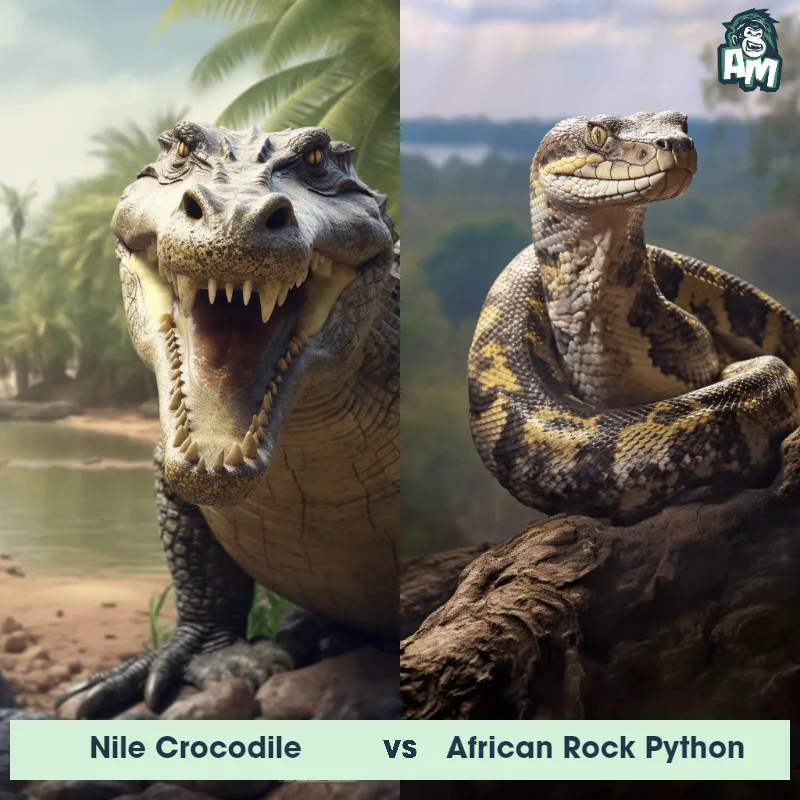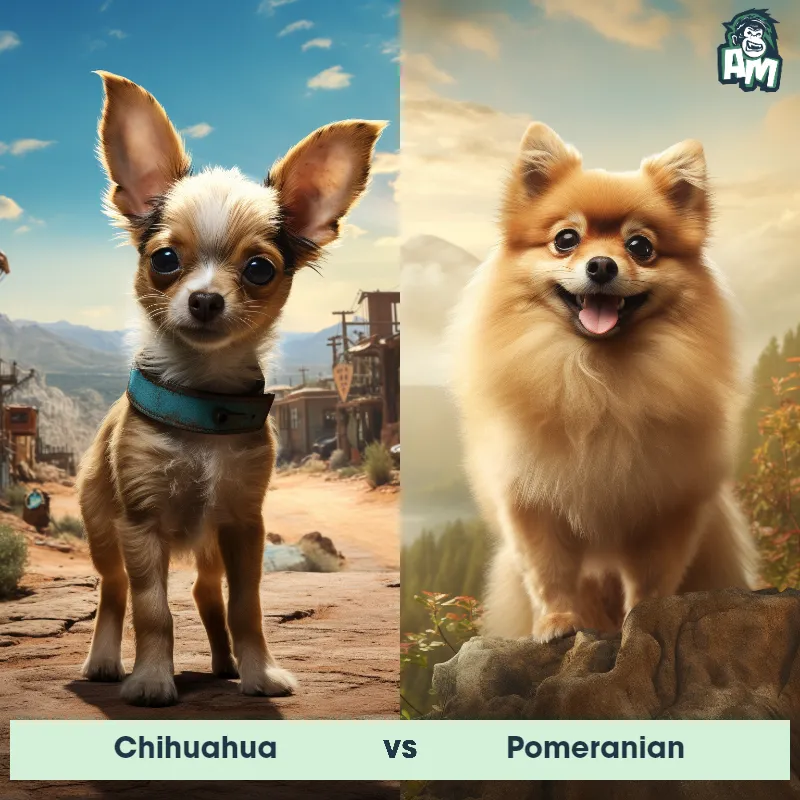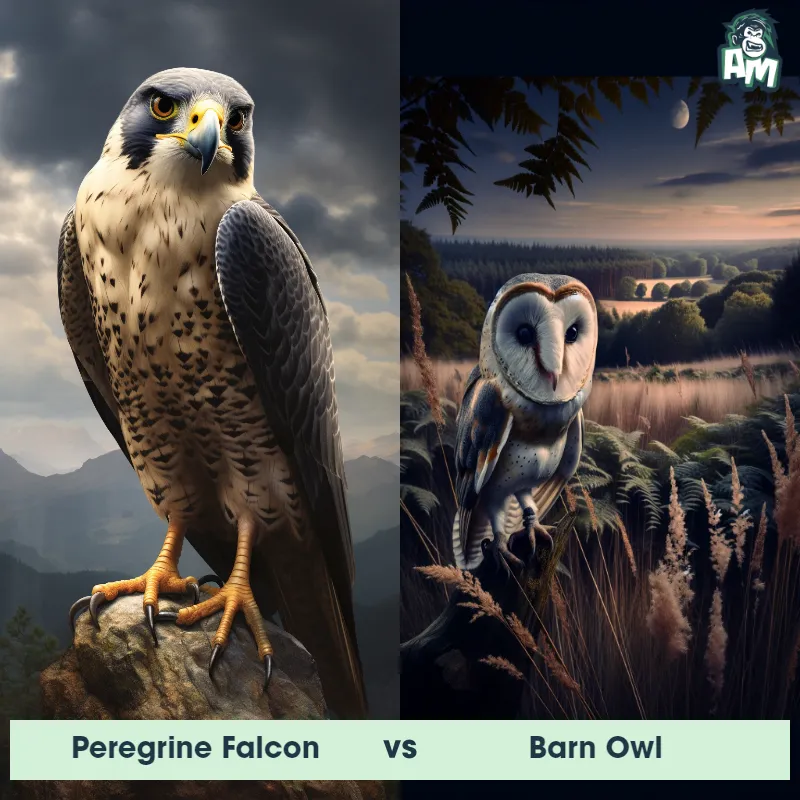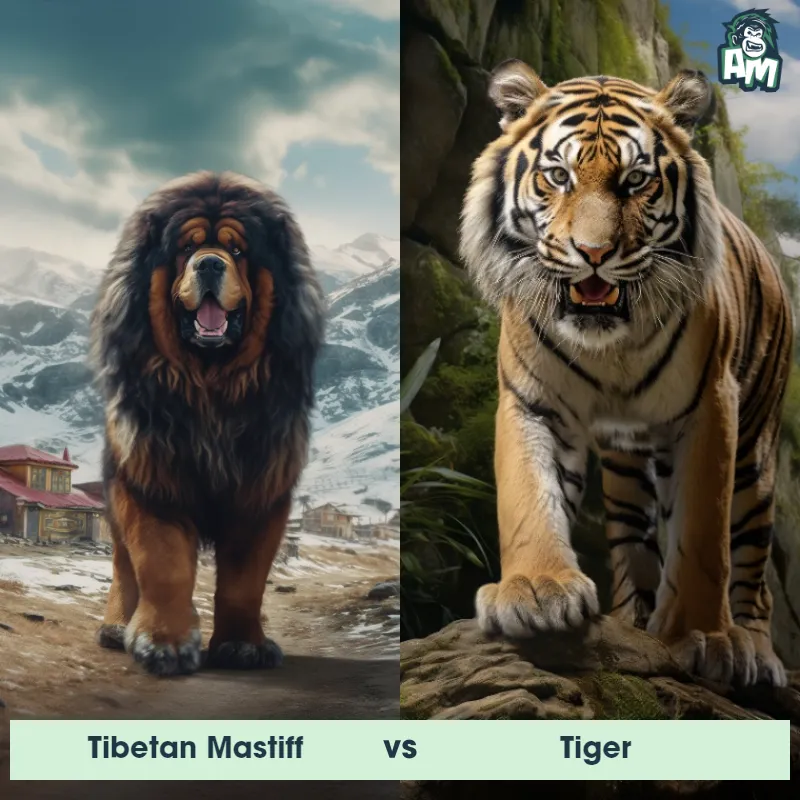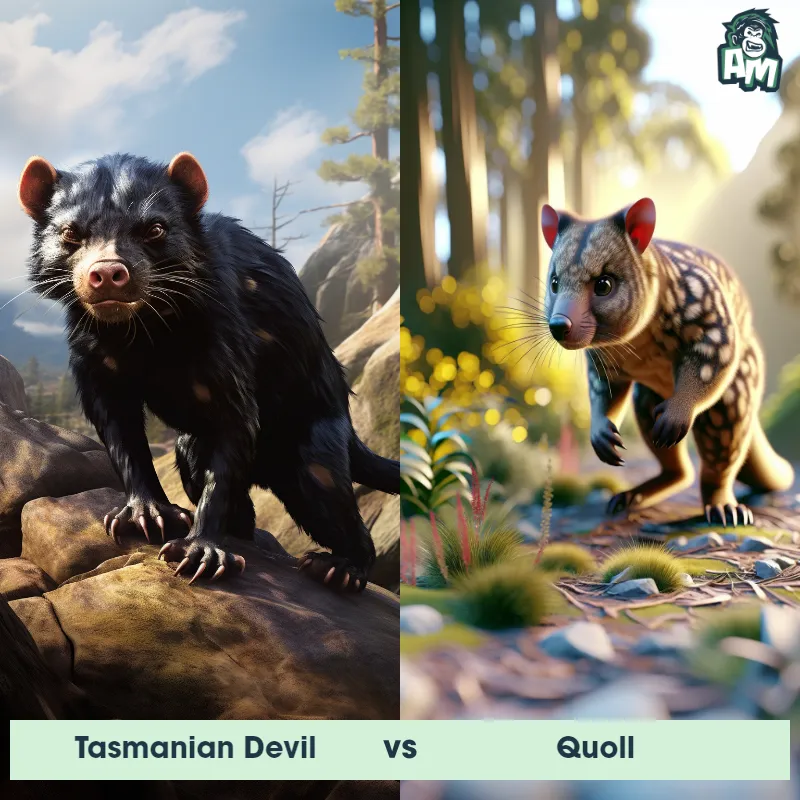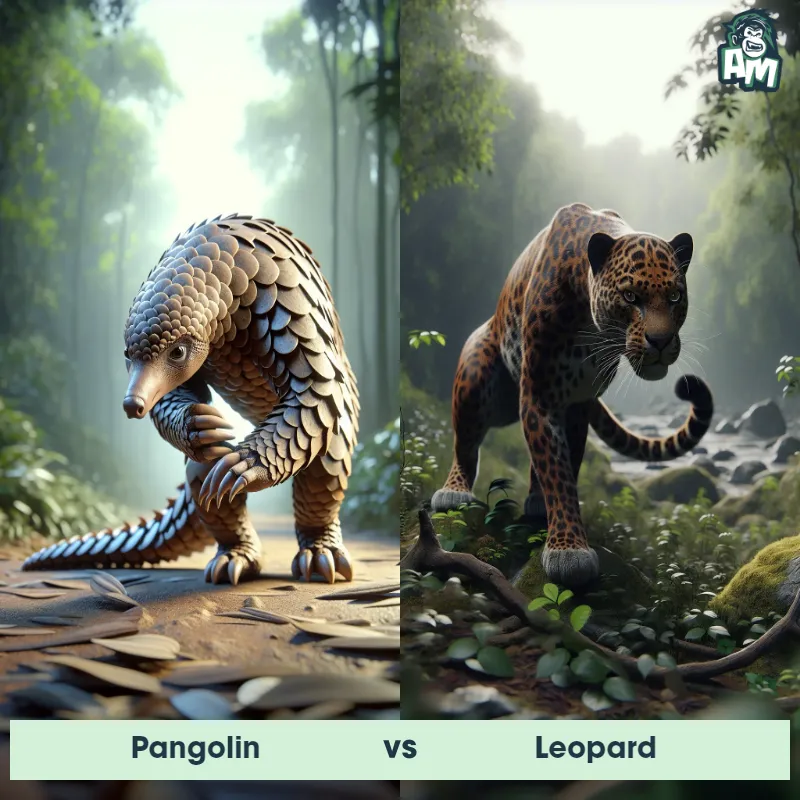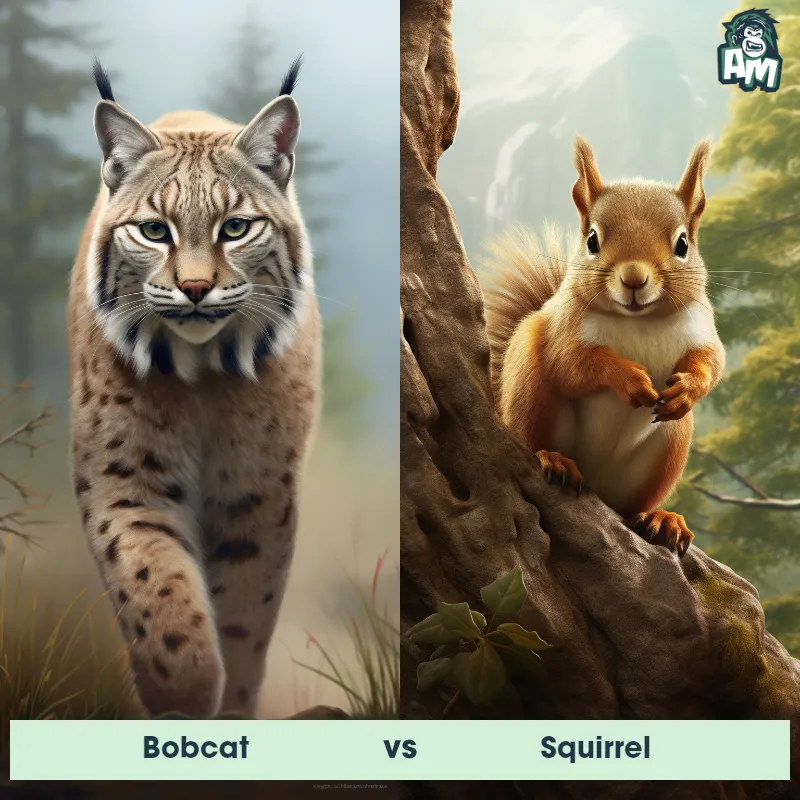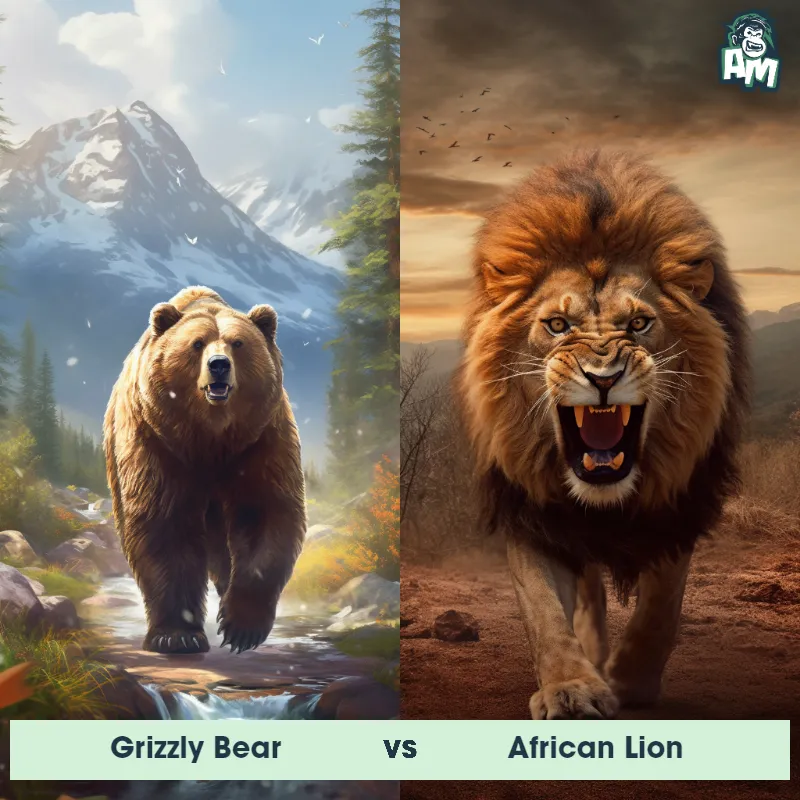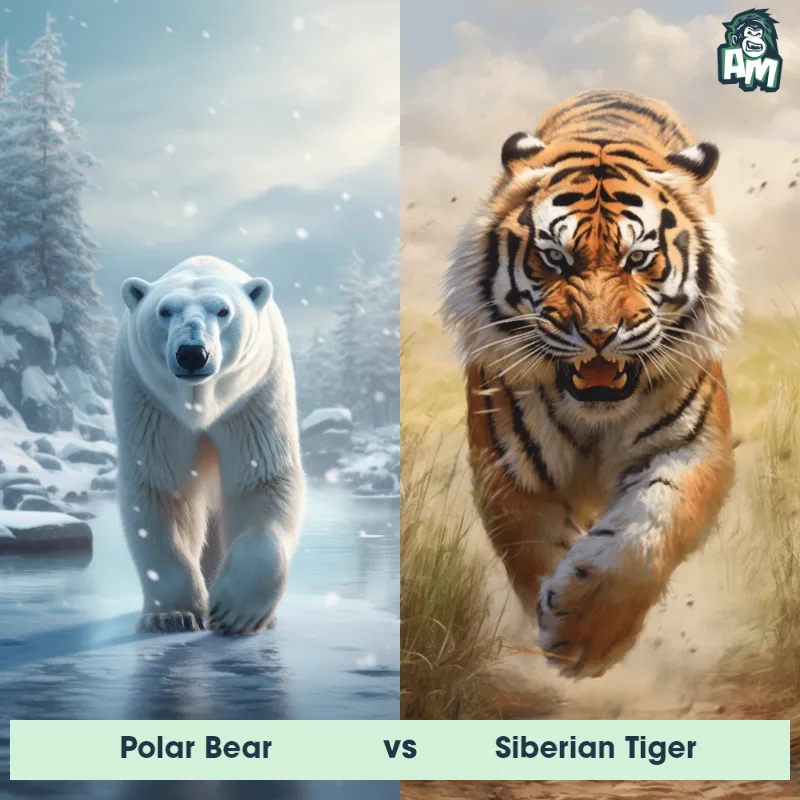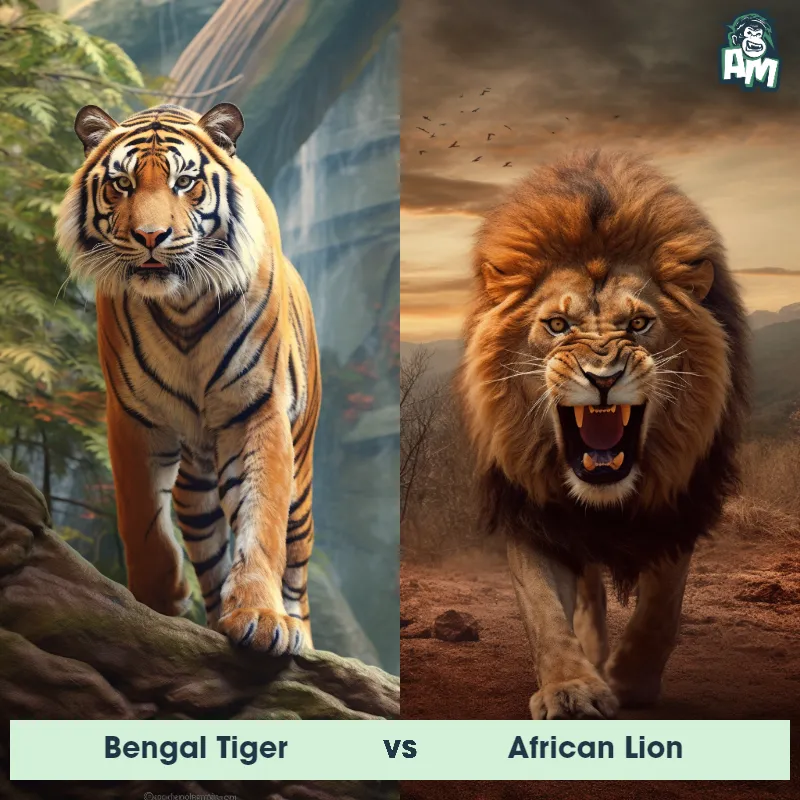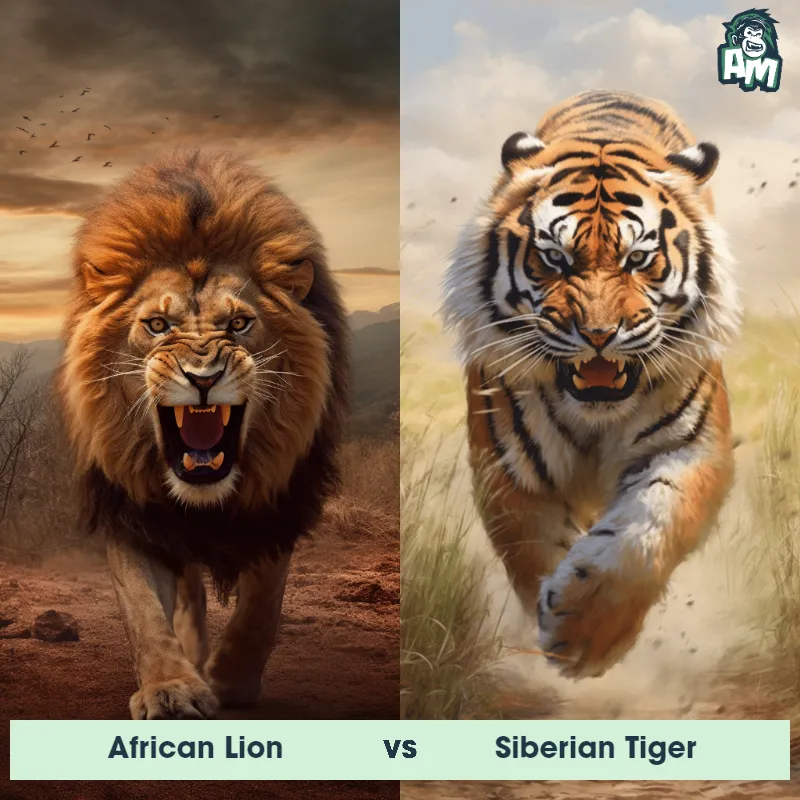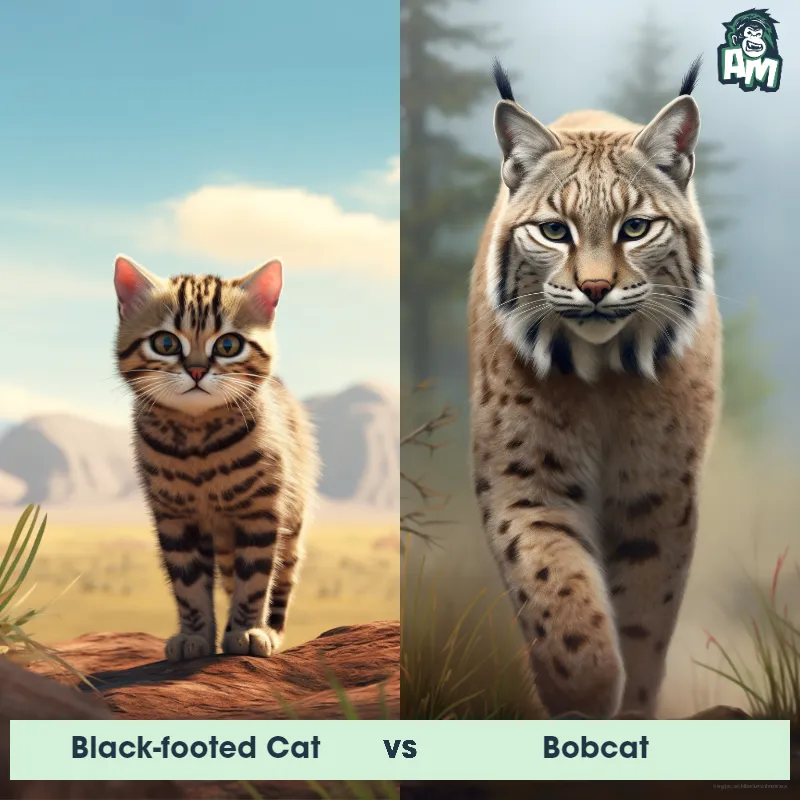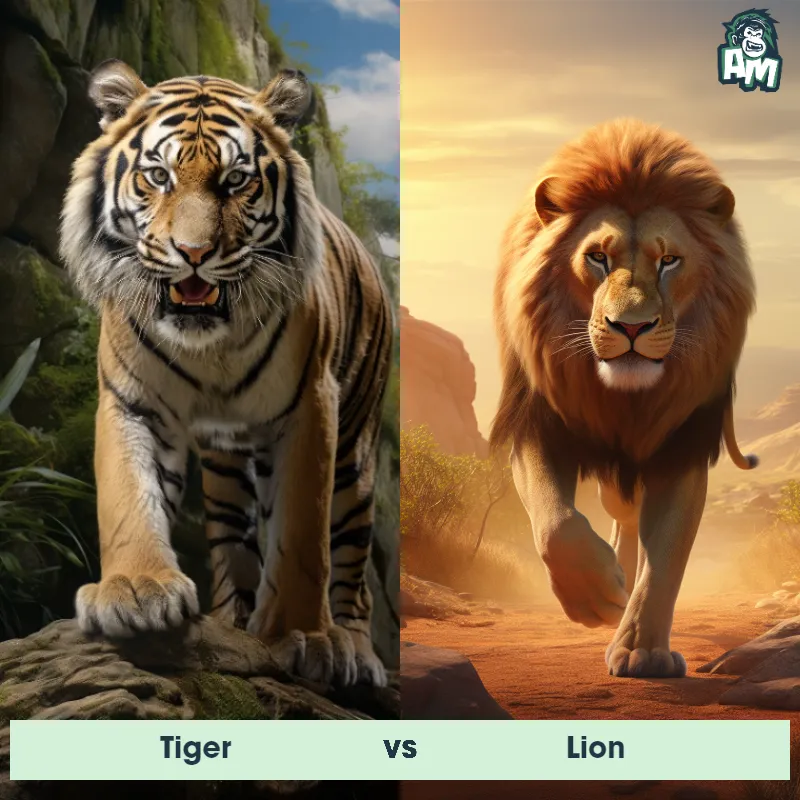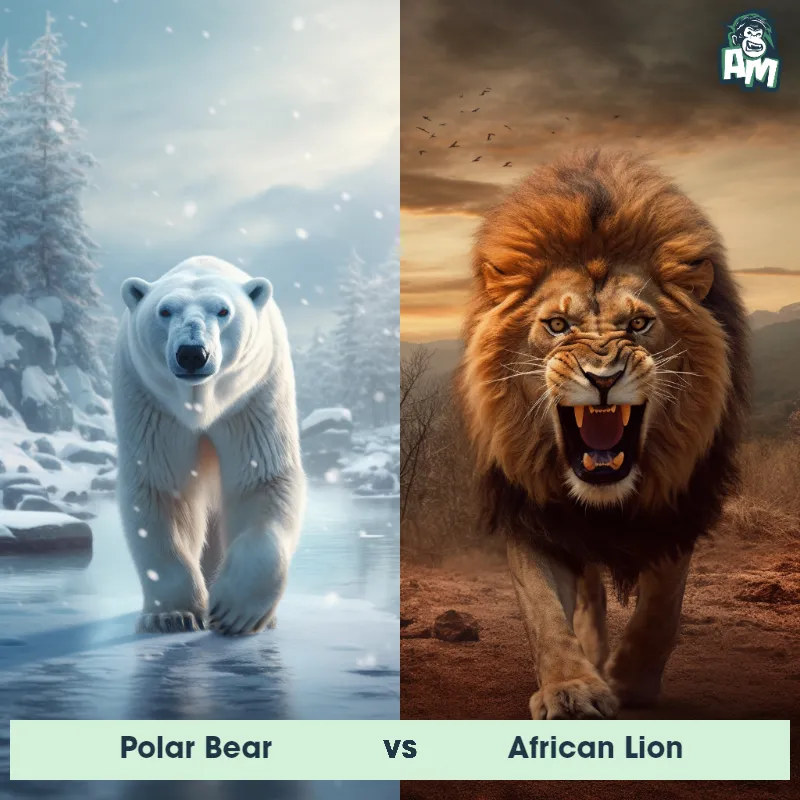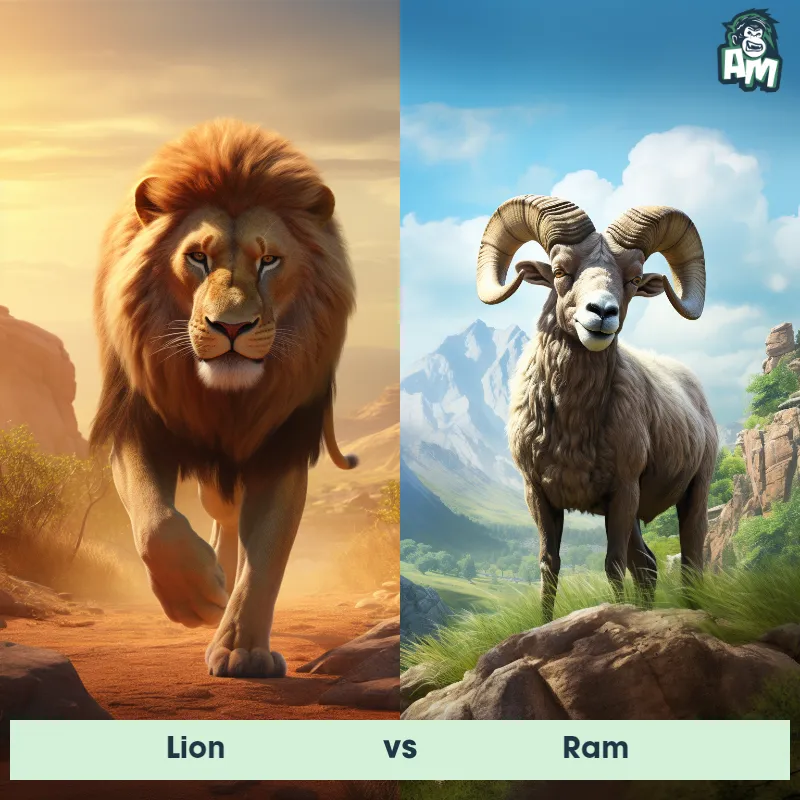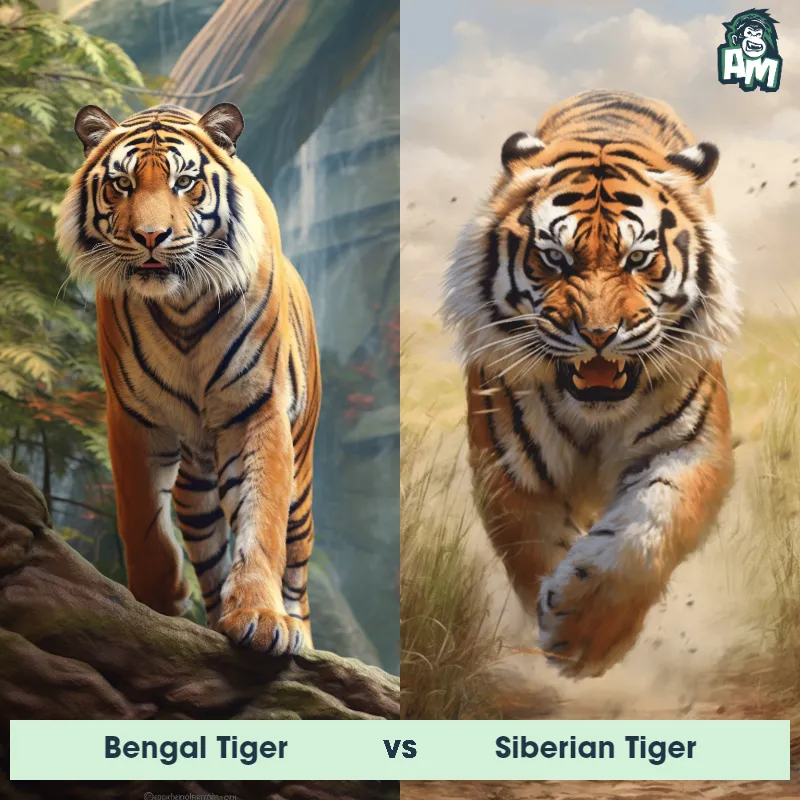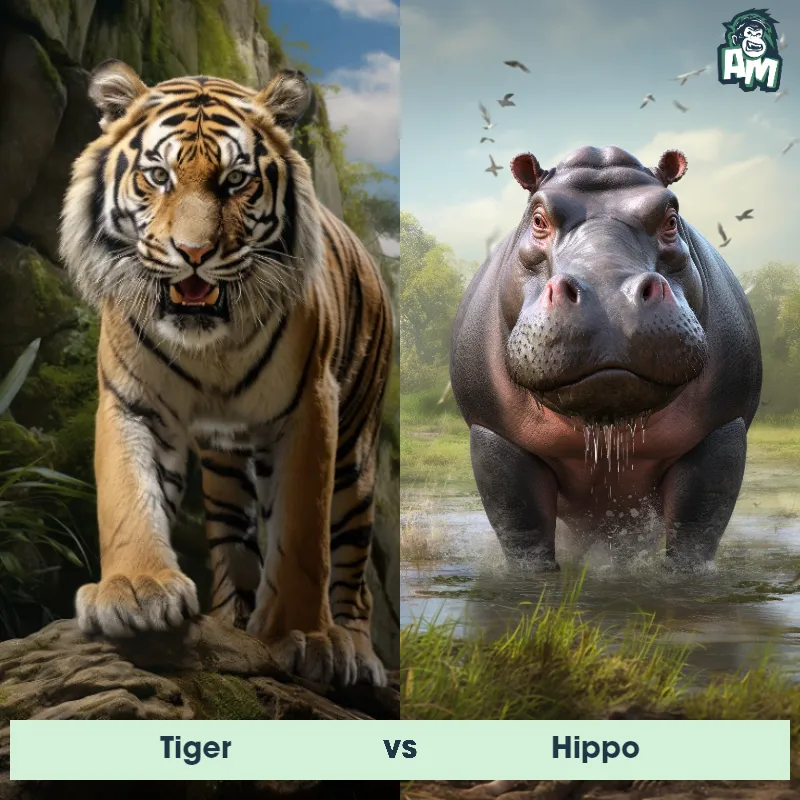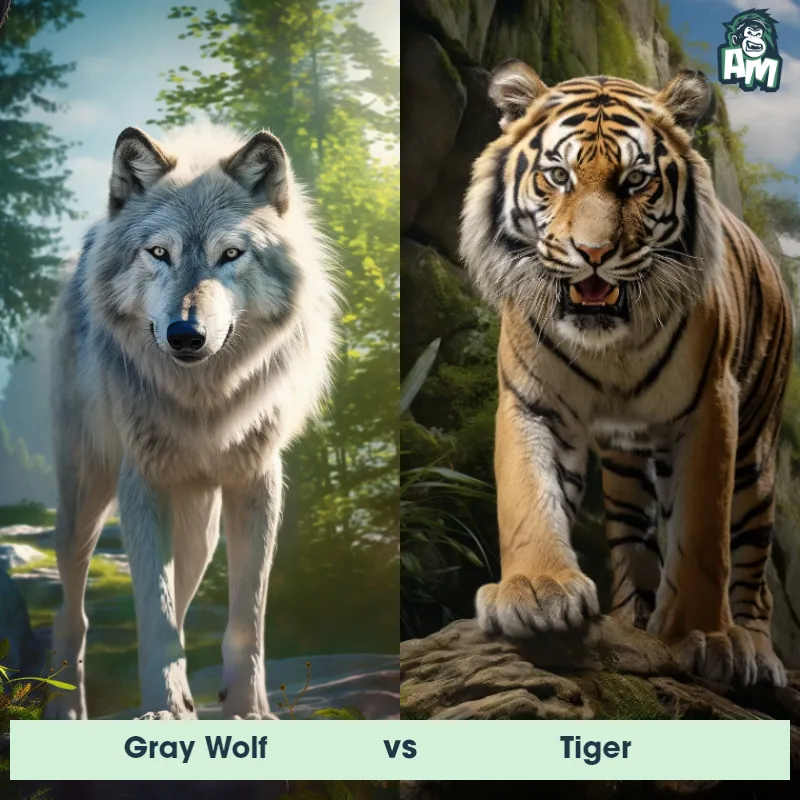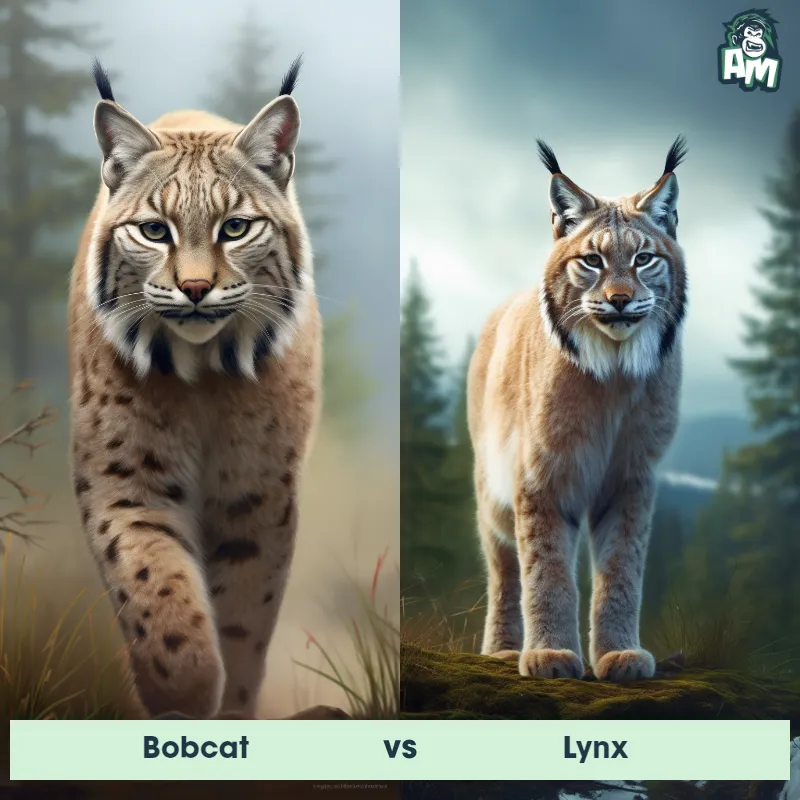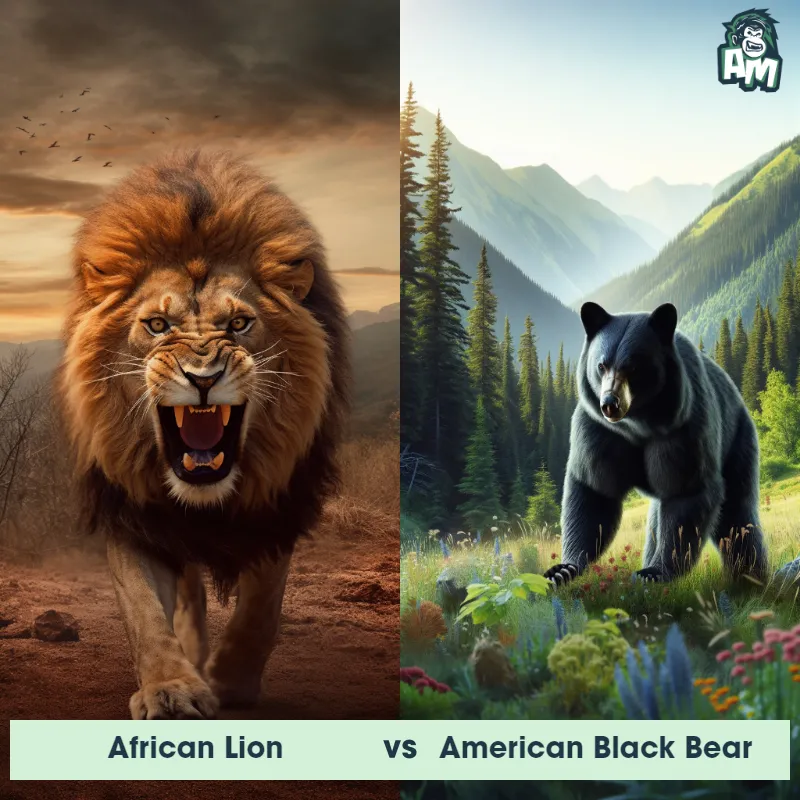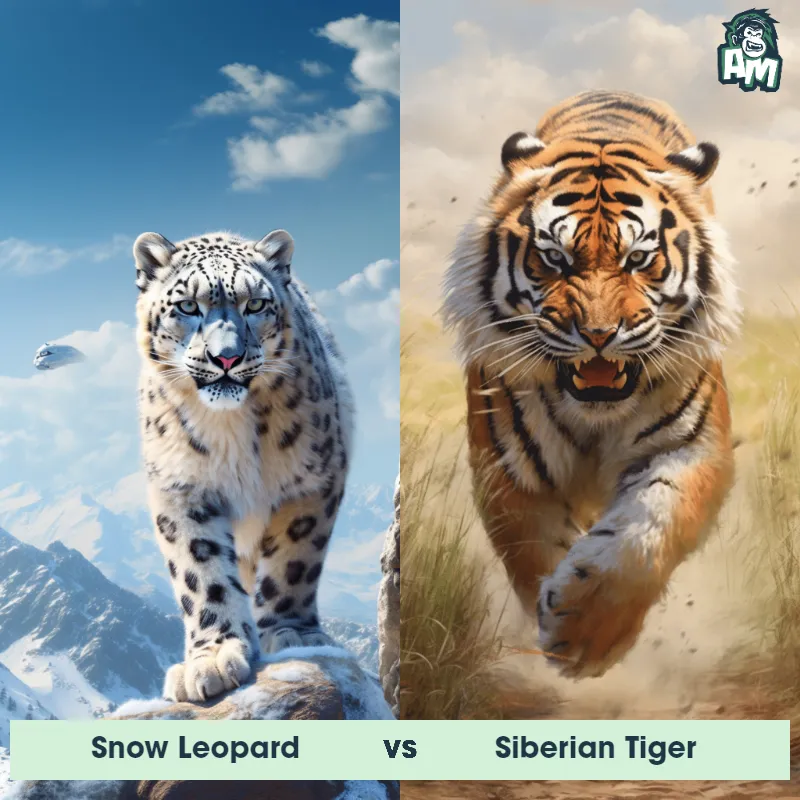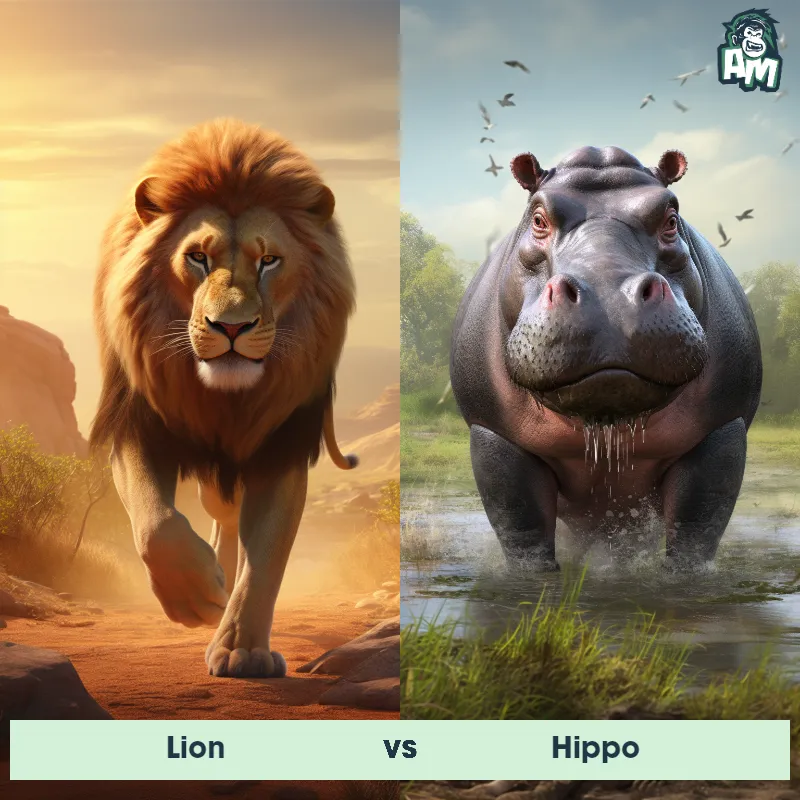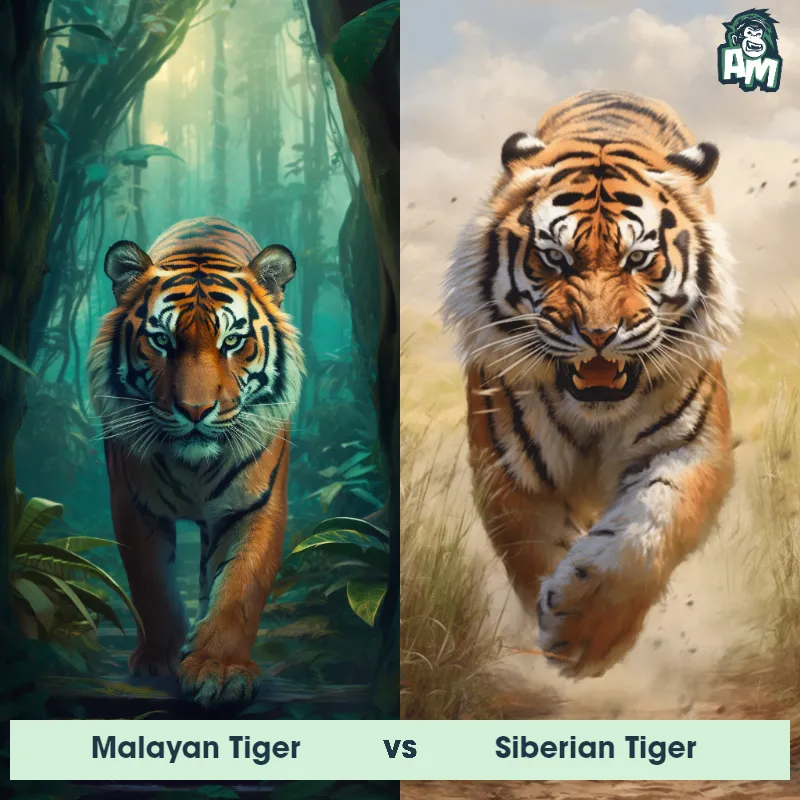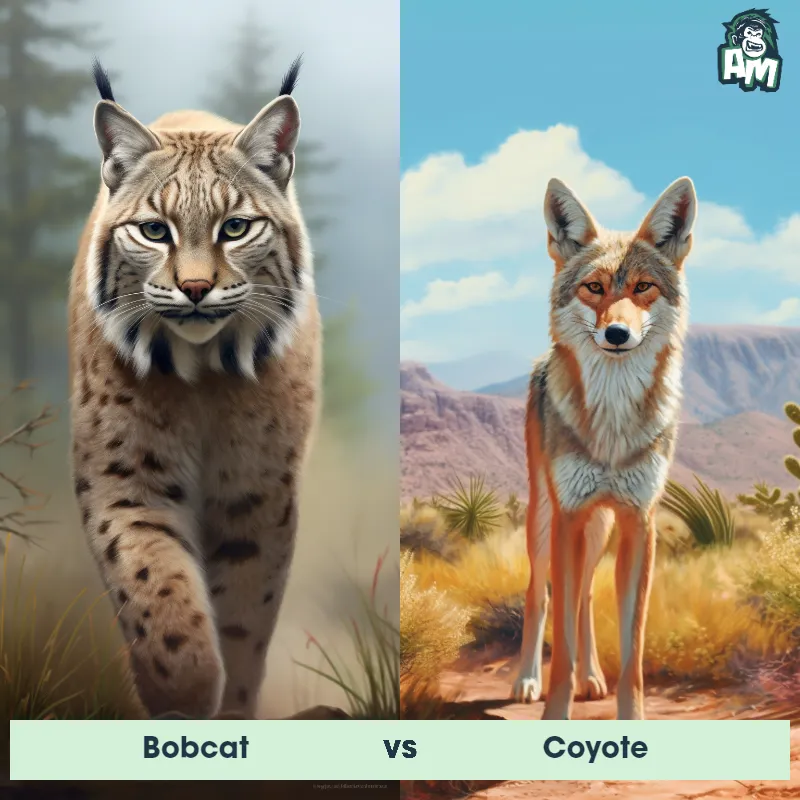African Lion vs TigerSee Who Wins

Ladies and gentlemen, welcome to this highly anticipated matchup between two of nature's most fierce predators. We're in for a thrilling three rounds as an African Lion prepares to face off against a mighty Tiger. This clash of power and agility is sure to captivate us all. Let's get started!
Contender 1: African Lion
The African Lion, also known as Panthera leo, is a large carnivorous mammal that is native to Africa. They are the second-largest living cat species, with males weighing up to 550 pounds and females weighing up to 400 pounds. African Lions have a distinctive mane of hair around their necks, which is more prominent in males. They are social animals that live in prides, which consist of several females, their cubs, and a few males. African Lions are apex predators and are known for their strength, speed, and hunting abilities.
Fun Fact: African Lions are the only cats that have manes, and the color and size of their manes can indicate their age and health.
Contender 2: Tiger
The Tiger is a large and powerful big cat, known for its distinct orange coat patterned with black stripes, which are unique to each individual, much like a human fingerprint. Tigers have a muscular build, a heavy head with strong jaws, and a tail that is usually about half the length of their body. The largest species of the cat family, adult male tigers can reach up to 10 feet in length and weigh up to 660 pounds. Tigers are native to various parts of Asia and are adept swimmers, unlike most members of the cat family.
Fun Fact: Tigers are apex predators and primarily consume larger mammals for food, including deer and wild boar; a hungry tiger can eat as much as 60 pounds in one night.
Matchup Stats
| African Lion | Tiger | |
|---|---|---|
| Size | Up to 4 feet (1.2 meters) at the shoulder | Up to 10 feet in length (3.05 meters) |
| Weight | Up to 550 pounds (250 kilograms) | Up to 660 pounds (300 kilograms) |
| Speed | Speed: 50 mph (80.47 km/hr) | 35-40mph (56-64km/h) |
| Key Strength | Powerful jaws and sharp claws | Strong jaws and muscular build |
| Biggest Weakness | Vulnerable to attacks on the back and sides | Limited endurance for long chases |
Current Votes
African Lion vs Tiger
See Who Wins
View More Matches
Looking For More?
Similar Matches
Scientific Stats
| African Lion | Tiger | |
|---|---|---|
| Scientific Name | Panthera leo | Panthera tigris |
| Family | Felidae | Felidae |
| Habitat | Grasslands, savannas, and open woodlands | Forests, grasslands, and swamps |
| Geography | Africa | Asia |
| Diet | Carnivorous, primarily hunting large ungulates such as zebras and wildebeest | Carnivorous, primarily deer and wild boar |
| Lifespan | 10 years - 14 years | 15 years - 26 years |
Key Differences between African Lion and Tiger
- Tail appearance: African Lions have a long tail with a tuft of fur at the end, while Tigers have a longer and thicker tail with no fur at the tip.
- Location: African Lions are exclusively found in Africa, while Tigers are not naturally found in Africa but are instead found in parts of Asia, including India, Russia, and Southeast Asian countries like Thailand and Indonesia.
- Size: The African Lion is usually smaller than the Tiger, with males weighing between 330 to 550 pounds and measuring around 4 to 5 feet tall at the shoulder, while Tigers can weigh between 400 to 600 pounds and stand around 3 to 4 feet tall at the shoulder.
- Facial features: Lions have a rounded head shape with a prominent and long mane around the neck in males, while Tigers have a more elongated head with shorter fur and no mane.
- Color and pattern: African Lions have a light tawny or golden coat color with black manes in males and a paler underbelly, while Tigers have a more vibrant orange coat color with characteristic dark vertical stripes across their body.
- Habitat: African Lions are primarily found in grassland savannahs and dry scrub in sub-Saharan Africa, while Tigers are native to various habitats ranging from tropical rainforests to mangrove swamps in Southeast Asia, as well as some parts of the Indian subcontinent.



